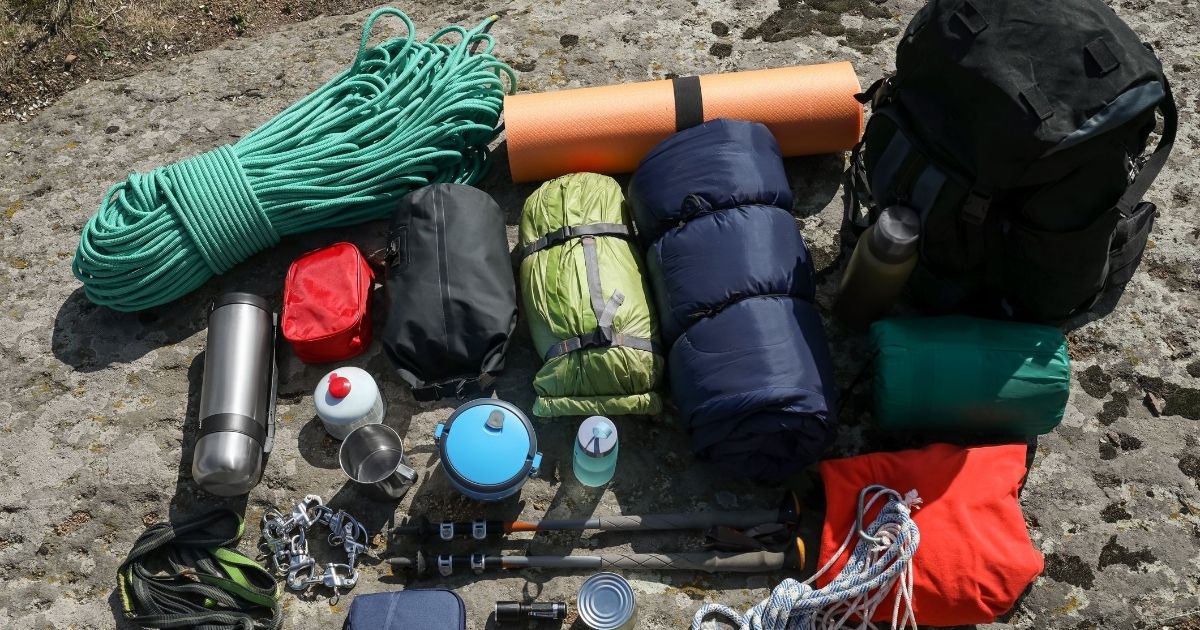Read more: Tuskegee Foundation Withdraws Proposal To Build Golf Course In Florida State Park
On Wednesday Aug.28, Florida Governor Ron DeSantis addressed reporters at a press conference in Polk County to make his first public comments on the controversial proposal to build golf courses at Jonathan Dickinson State Park, which has drawn heavy criticism from local communities in Palm Beach and Martin counties.
Seeking to downplay the growing backlash against the plan, DeSantis distanced himself and his administration from the proposal. The Governor stated the plan was "half-baked" and implied it was prematurely leaked to left-leaning environmental groups in order to generate "a narrative." He called the portrayal of several state parks becoming “a big parking lot” as "obviously a phony narrative."
As an avid golfer and Floridian myself, I could understand the original intent was perhaps to promote more public access to the sport. However, the proposal encountered deeper opposition than expected, likely due to lack of meaningful public consultation and concerns over potential impacts on sensitive park ecosystems. While improvements are welcome, any development requires balancing environmental protection and local sentiment.
In his comments last week, Governor DeSantis further expressed doubt about the proposal to construct golf courses at Jonathan Dickinson State Park.
He asserted that the plan was far from reaching the implementation stage and not ready for serious consideration. DeSantis also hinted that as it stands, this was not a project he was willing to spearhead.
While acknowledging there have been calls to revamp recreational amenities in state parks, the Governor insisted the Department of Environmental Protection needs to re-evaluate their approach to this particular proposal.
In fact, DEP had slated meetings this week to get public feedback, but those sessions were postponed, suggesting the agency itself recognizes the plan in its present form lacks community support.
DeSantis said “I’d rather not spend any money on this”. He affirmed that if residents are generally unreceptive to new developments, it’s best not to move forward.
Governor DeSantis conveyed he is "totally fine" with maintaining the status quo in state parks if that reflects citizens' preferences. This demonstrates a willingness to heed public opinion on this contentious issue.
The uproar over the DEP's "Great Outdoors Initiative" continues undiminished since it was revealed. Plans to install golf courses and lodges in treasured sites sparked ardent objections and demonstrations from park supporters.
Even the Governor's usual allies like CFO Jimmy Patronis and Agriculture Commissioner Wilton Simpson broke ranks to criticize the proposal. Both potential successors to DeSantis, their opposition suggests the proposal misjudged political crosscurrents.
As an individual who has experienced Florida's natural gifts both competitively and recreationally, I understand the motivation to share her wonders more widely. However, it's equally vital to preserve intrinsic ecological and social values for future generations.
It's evident the fervor against introducing golf courses to Jonathan Dickinson State Park transcends party lines.
US Representative Brian Mast, whose district includes the park, has been among the most outspoken critics. The Republican congressman vowed to uncover how such a drastic proposal could arise with no warning to adjacent Palm Beach and Martin County residents.
Mast decried the plan as tantamount to "bulldozing" the beloved wilderness area. His forceful condemnation highlights the depth of grassroots opposition.
Other GOP lawmakers like Senators Marco Rubio and Rick Scott likewise panned the initiative. Their objections confirm this is not a partisan squabble, but a unified response to protect a cherished community resource.
I'm encouraged to see elected leaders across the spectrum defending our natural heritage. Their united front recognizes our state's ecological treasures deserve thoughtful guardianship over transient political interests.
DeSantis Claims Park Golf Proposal was Misconstrued
While distancing himself from the specifics of the golf course plan, Governor DeSantis maintained aspects of the backlash have exaggerated the proposal's scope.
In a disputed assertion, the Governor said Jonathan Dickinson State Park's characterization as "unspoiled land" overlooks its prior use as a WWII military training base containing almost 1,000 structures. According to DeSantis, remnants from that era endure onsite even today.
I can understand the motivation to highlight any signs of past human impact for contextualizing new recreational initiatives. However, the preservation of natural areas remains paramount, and sentiment often stems as much from a place's current character as historic designations.
Ultimately, this debate reflects competing priorities for our public lands. While some degree of reasonable upgrades are plausible, state parks hold uniquely cherished value for many. Any development requires consensus that no intrinsic qualities be compromised.

Protestors against development at Florida’s state parks gather for a rally at the entrance to Honeymoon Island State Park Tuesday, Aug. 27, 2024, in Dunedin, Fla. (AP Photo/Chris O’Meara)
Faced with a torrent of criticism, the obscure Tuskegee Foundation pulled its proposal for golf courses at Jonathan Dickinson State Park just days after its role was revealed.
However, public disapproval of bringing golf to the treasured park shows no signs of abating. Republican State Senator Gayle Harrell from the local Stuart area moved to introduce legislation defining suitable park activities, reflecting ongoing unease.
Similarly, the county commissions representing Palm Beach and Martin counties both lodged formal objections to the plan. And rallies against development of the park continued even after DEP confirmed Tuskegee had withdrawn.
Adding to the backlash, golf design powerhouses like Nicklaus Companies took the unusual step of expressly denying involvement. While founder Jack Nicklaus has been connected to philanthropic partner the Tuskegee Foundation in the past, they aimed to dissociate from this controversial proposal.
The emphatic rejection from so many perspectives demonstrates how deeply locals cherish Jonathan Dickinson in its present natural state. Safeguarding such valued wilderness areas will certainly need addressing as our population swells.
Plans for Three Golf Courses at Jonathan Dickinson Leaked
Last week, documents exposing the Florida DEP's ambitious proposals under the 'Great Outdoors Initiative' were leaked to environmental groups.
Buried within was a highly contentious element - three new public golf courses to be constructed at Jonathan Dickinson State Park. Spanning an estimated 600 acres of the beloved 10,500-acre wilderness area, the golfing complex would utterly transform this cherished natural refuge.
Unsurprisingly, release of these plans ignited a firestorm of protest from residents and conservationists. Given the strength of objections, DEP wisely postponed public scoping meetings that had been scheduled for earlier this week.
I understand the desire to expand recreational access, however, our precious state parks hold profound cultural value beyond physical amenities. Any development necessitates consent from those most affected.
Tuskegee Foundation Withdraws Proposal amid Scrutiny of Obscure Backer
Facing mounting backlash, the little-known Tuskegee Foundation pulled the plug on its plan to build three golf courses at Jonathan Dickinson State Park.
Registered in Delaware, where disclosure laws are lax, the Foundation's withdrawal two days after emerging from the shadows is telling. Further fuelling skepticism were revelations its Florida lobbyists include a former top DEP official.
Registered non-profits aim to benefit the greater good, yet their obligations for transparency vary state-by-state. While foundations play vital social roles, ambiguity understandably sowed public distrust in this case.
I've seen how lack of disclosure and community investment often doom controversial projects, even with noble goals. Moving forward, state regulators would do well ensuring all stakeholders have a proper voice, especially concerning much-cherished public assets.
Before ceding to opposition, the Tuskegee Foundation stated their golf course plan aimed to honor the historic legacy of the heroic Tuskegee Airmen through Florida facilities.
However, with outrage gathering pace, the Foundation stepped back from the proposal after gauging fierce local sensitivities. In a statement posted to social media by commentator Daniel Bongino, they acknowledged Jonathan Dickinson was the wrong location and committed to avoiding development there.
While DEP maintained the Foundation worked in good faith to deliver public access and support military families, residents clearly prioritized protecting the park's wilderness character above all.
Speaking as an advocate for both conservation and the game of golf, I believe our natural treasures must safeguard native habitats first. Although noble to educate through amenity projects, communities rightly cherish lands like Jonathan Dickinson in their pristine state.
What is the Folds of Honor?
The Folds of Honor Foundation is a highly respected non-profit organization that provides educational scholarships to the spouses and children of fallen or disabled service members.
Founded in 2007 by Lt. Col. Dan Rooney, a decorated F-16 pilot who served in Iraq, Folds of Honor has honored hundreds of military families through its charitable efforts.
In his statement, commentator Daniel Bongino revealed Folds of Honor had previously explored developing a veterans-themed golf course at Jonathan Dickinson State Park. However, their concept was apparently rejected before the current proposal emerged.
Bongino, a Palm Beach resident, also disclosed assurances he received that Folds of Honor had no intentions to revive their plan considering local sensitivities. Their solely good intentions to pay tribute through recreational opportunity were simply misaligned with community attachments to preserving the park in its natural state.
Open since 2018, American Dunes was masterfully designed by local icon Jack Nicklaus, who donated his entire fee to support Folds of Honor. With a motto extolling faith, patriotism and the game, it serves as another example of their vision to honor veterans through recreational development.
As a fellow Palm Beach County resident, Nicklaus' intimate knowledge of sensitive Florida ecosystems likely informed his withdrawal from any association here. But American Dunes shows how, in less contentious areas, amenity projects can uplift communities while aligning preservation goals - a model some hope to replicate closer to home one day.
DeSantis Commends Folds of Honor While Citing Viability of Public Golf
While distancing himself from the specific park proposal, Governor DeSantis rightly praised Folds of Honor's exemplary work supporting military families through challenging times. Their philanthropic pursuits resonate strongly with Floridians.
DeSantis also made prudent observations about golf's accessibility. As an aficionado myself, the sport's costs can indeed inhibit many. However, the Governor cited positive examples like Park West's facilities delivering benefits to youth and residents through reasonable rates alongside tournament-caliber golf.
I believe balanced solutions fulfilling mutual priorities are achievable with open-minded engagement. While parklands necessitate thoughtful preservation above all, well-designed public access could expand participation when sensitively integrated into appropriate areas.
History Repeats as Plans for Park Golf Face Backlash Once Again
It's revealing that proposals to install golf facilities at Jonathan Dickinson State Park confront familiar obstacles, as similar initiatives emerged a decade ago only to be swiftly abandoned.
In 2011, bills aimed at developing a "Jack Nicklaus Golf Trail" through Florida's state park system initially singled out Jonathan Dickinson for consideration. Given the local legend's Palm Beach home lies nearby, his imprint presumably figured prominently in those iterations too.
Just as with present reactions, fervent citizen objections compelled legislators to withdraw those measures posthaste. This affirms how the community has long fiercely safeguarded this natural refuge from recreational encroachment, no matter the master planner behind potential transformation.
Such consistent sentiment cautions any golf-related pursuits will likely founder without unequivocal backing at the grassroots. For irreplaceable sanctuary areas, protection must take precedence over all other aims however well-meaning.
Nicklaus Enterprises Distances from 'Ill-Conceived' Park Pitch
In strong terms, Nicklaus Companies made doubly clear it had nil involvement with proposals debated for Jonathan Dickinson State Park.

While founder Jack Nicklaus stepped back in 2022 at age 82, his renowned design company issued an unambiguous stance opposing development encroaching on Florida's protected wildlands. Indicating no foreknowledge of independent interests, they doubled down against participating should such appeals surface again.
Speaking as an advocate for natural heritage conservation and an aficionado of Nicklaus' incomparable body of work, I take comfort from leaders in the golf world disavowing initiatives threatening sensitive sanctuaries.
Going forward, land use will remain a sensitive balancing act between access, community priorities and ecological safeguards - but responsible guidance from respected voices can help navigate prickly issues with care, nuance and forethought for all involved. Open yet prudent discussions may still offer chances to spread golf's reach sustainably.
Mystery Surrounds Backers of Jonathan Dickinson Pitch
Given Delaware's opaque disclosure laws, scant details have surfaced regarding the Tuskegee Dunes Foundation behind proposals for Jonathan Dickinson State Park.
Incorporated last August, public records list the fledgling organization as having minor tax debts. Curiously, their statement and barebones website offer no information on leadership, structure as non-profit, location or history.
While touting noble aims, ambiguity understandably invited suspicion - especially considering prior unsuccessful pitches. Transparency will be key to building trust should Tuskegee Dunes envision golf-related initiatives elsewhere down the road.
While aspirations to grow the game for good causes deserve consideration, responsible stewardship of public assets demands sunlight on all parties closer.
Further digging uncovers more overlaps between Tuskegee Dunes and the esteemed Folds of Honor organization.
Notably, the Foundation planned to donate profits from the park endeavor towards Folds' scholarship efforts. Additionally, Tuskegee named a lobbyist with deep Tallahassee roots with the same Oklahoma address on file for Folds.
Adding another layer, this individual previously held high-ranking Florida environmental policy roles under the previous administration. Curiously, requests for clarification on all such connections have gone unanswered.
As someone routinely scrutinizing industry players, these new revelations only heighten curiosities surrounding the true aims and constituency behind Tuskegee Dunes' park aspirations. While visions to spread golf's bounty towards noble causes are understandable, responsibilities for transparency and open partnership are crucial when involving public assets or interests.
Proposed Golf Complex Would Have Remade Iconic Park
Plans unveiled indicate extensive changes were envisioned for Jonathan Dickinson with the ambitious 600-acre, three-course complex.
Incorporating mountain biking and hiking positives trails while enhancing signature sites is commendable. However, the sheer scale in one of South Florida's premier wilderness gems understandably alarmed many locally.
With 85% of existing golf private according to Tuskegee Dunes, the disparity is concerning. Yet sensitive public parks hold unique cultural value as pristine sanctuaries for all residents.
Former DEP leader Eric Draper echoes these views, justifiably questioning why officials would aim to reduce our natural heritage. Grassroots advocacy clearly remains crucial safeguarding treasured spaces for generations.
Lawmaker Dismisses Call for Golf at Idyllic State Park
Speaking with Senator Harrell confirmed legislators' acute awareness of local sensitivities. She rightly argued protected areas demand exceptional deference from development, especially in treasured jewels along Florida's Treasure Coast.
While appreciating Folds of Honor's constructive mission, the Senator imparted protecting green spaces deserves precedence over recreational aims within park confines. Her stance affirms natural heritage must come before all else where ecosystems face irreversible change.
I believe pragmatism and balance offer the surest path. Opportunities supporting recreation and conservation priorities compatible could still emerge outside preserves' borders with open community discussion.
Diverse Amenities May Boost Access Compatibly
While Jonathan Dickinson's cherished wilderness character necessitates protection, the variety of facilities proposed at other parks demonstrates balanced approaches can spread recreation's benefits thoughtfully.
Low-impact cultural amenities bear far less ecological impact than intensive development. And reasonable accommodations enhancing visits could bolster less consumptive activities aligning with conservation too.
Disc golf, for example, offers a sustainable outdoor pastime for all demographics, whilePickleball's fast growth shows its community appeal. Strategically-sited lodges could also foster immersive appreciation of special areas' natural splendors.
Going forward, open evaluation of complementary proposals respecting native habitats seems a sensible path, especially if surfacing through grassroots interests. With care and community consent, recreation can uplift parks' missions compatibility when vision and execution consider every angle.
Progress demands nuanced, inclusive conversations acknowledging all viewpoints early. Balance nurtures understanding, benefitting our scenic heritage for generations to discover and protect in turn.
Local Stewards Vow to Guard Iconic Park In Perpetuity
Jessica Namath and Kim Knobbe echoed the care so many constituents feel conveying Florida's esteemed public wilderness areas remains accessible, unaltered and safeguarded for untold future generations.
As a lifelong outdoor enthusiast myself witnessing first-hand depleted refuges elsewhere, such custodianship is desperately needed and deservedly applauded. Their activism confirms parks' prosperity depends upon community ownership upheld through engaged partnerships.
Reveling amid Jonathan Dickinson's unspoiled charms, piqued discovery spirit remains the greatest gift such locales provide residents and visitors alike. For that reason alone, their irreplaceable natural heritage warrants utmost protection above all aims conflicting with nature's serenity.
Going forward, ongoing vigilance combined with open yet prudent governance holds the surest path balancing access with ecosystems' long-term viability. With shared stewardship, our parklands' magnificence will continue uplifting all seeking solace in Florida's scenic splendors due to caring voices echoing louder than any threats to their futures.
References: https://www.palmbeachpost.com/story/news/environment/2024/08/28/desantis-distances-himself-on-state-park-golf-plan-saying-it-was-hal-its-part-of-left-wing-narrative/74979058007/

.jpg)


.png)

.jpg)

.jpg)
.png)





